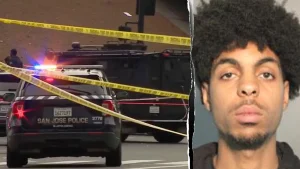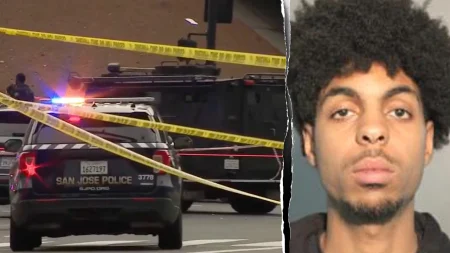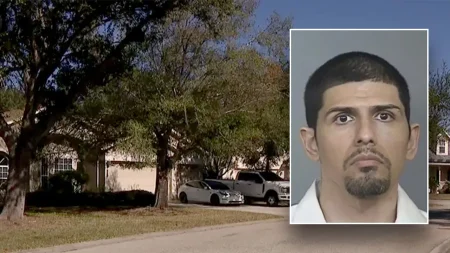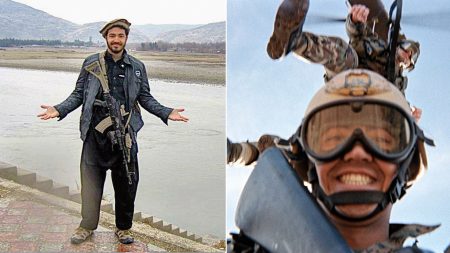U.S. Military Whistleblower Challenges Official Narrative on Palestinian American Journalist’s Death
Senior Officer Claims Investigation Findings Were Downplayed to Maintain Israeli Relations
In a remarkable break from military protocol, a high-ranking U.S. colonel has publicly voiced grave concerns that the official investigation into the 2022 killing of a prominent Palestinian American journalist was deliberately softened to preserve diplomatic relations with Israel. This explosive allegation threatens to reignite international scrutiny of both the journalist’s death and the complex dynamics of U.S.-Israeli relations during a particularly volatile period in Middle Eastern politics.
Speaking on condition of partial anonymity due to the sensitive nature of his allegations, the colonel—who held a senior position within the military chain of command responsible for reviewing the investigation—described what he characterized as “institutional pressure” to present findings in a manner that would minimize potential diplomatic friction with a key regional ally. “What I witnessed was a subtle but unmistakable shift in language and emphasis that effectively diluted the investigation’s more troubling conclusions,” the colonel told reporters during an extensive interview. “The final report that reached the public bore only a passing resemblance to the initial assessments made by investigators on the ground.”
The journalist, whose death sparked international outrage and calls for accountability from press freedom organizations worldwide, had been covering Israeli military operations in the West Bank when she was fatally shot despite wearing clearly marked press identification. Initial eyewitness accounts from colleagues present during the incident described what appeared to be targeted fire from Israeli positions, contradicting early Israeli claims that Palestinian militants were responsible. The whistleblower colonel’s allegations center specifically on how these competing narratives were evaluated and presented in subsequent U.S. official statements and reports.
Timeline of Tragedy: How the Investigation Unfolded
The killing occurred during a period of heightened tensions in the region, as Israeli security forces conducted operations following a series of attacks within Israel. According to multiple witnesses and surviving journalists who were present, the reporting team had clearly identified themselves as press to Israeli forces in the area before taking positions to document the ongoing military activity. The fatal shot came during what had been described as a relatively calm moment in the operation, raising immediate questions about whether the press team had been deliberately targeted.
In the immediate aftermath, Israeli officials issued statements suggesting Palestinian militants were responsible, pointing to ongoing exchanges of fire in the vicinity. However, this narrative quickly unraveled as forensic evidence, ballistic analysis, and additional testimony emerged suggesting a different scenario. Independent investigations conducted by multiple international news organizations and human rights groups concluded with high probability that the fatal shot originated from the position of Israeli forces. These findings placed significant diplomatic pressure on both the Israeli government and U.S. officials to address mounting evidence contradicting the initial explanation.
The U.S. State Department and Defense Department eventually launched their own assessment of the incident, promising a thorough and impartial evaluation of all available evidence. It was during this process, according to the whistleblowing colonel, that he observed what he describes as “a gradual recalibration of language” that served to introduce ambiguity into what investigators had initially viewed as a more clear-cut case. “Technical conclusions about bullet trajectories, timing of shots fired, and positioning of forces were presented with qualifiers and caveats that weren’t justified by the evidence,” he stated. “The effect was to transform reasonable certainty into perpetual doubt.”
Behind Closed Doors: The Politics of Military Investigations
The colonel’s allegations offer a rare glimpse into the intersection of military investigations and diplomatic considerations that typically remain shielded from public view. According to military justice experts consulted for this report, investigations involving allies—especially strategically crucial partners like Israel—inevitably navigate competing institutional priorities. Dr. Eleanor Simmons, a specialist in military justice at Georgetown University, explained that “investigation findings don’t exist in a political vacuum, particularly when they involve sensitive international relationships where multiple national security interests are at stake.”
This dynamic becomes especially pronounced in cases involving the U.S.-Israel relationship, long considered one of America’s most strategically significant and politically sensitive international partnerships. With billions in military aid flowing annually and deep intelligence sharing arrangements, the relationship carries enormous weight within defense and diplomatic circles. The whistleblower’s claims suggest that maintaining this relationship influenced how investigation findings were presented to the public—raising profound questions about accountability and transparency in military investigations involving strategic partners.
Former Defense Department legal advisor Jonathan Harrington noted that while such influences are rarely documented explicitly, they often manifest in subtle ways: “You won’t find a memo directing investigators to change conclusions to appease an ally. Instead, there’s a process of review where findings are scrutinized for ‘diplomatic implications,’ leading to increasingly cautious language that erodes the clarity of the original conclusions.” This description aligns closely with the colonel’s account of how the investigation’s findings evolved as they moved up the chain of command and through interagency review processes.
Press Freedom Implications and International Reaction
The colonel’s allegations have sparked renewed calls from press freedom organizations for an independent international investigation into the journalist’s death. The Committee to Protect Journalists issued a statement emphasizing that “when governments investigate themselves or their allies in cases involving press casualties, the credibility of findings is inherently compromised.” Similar statements from Reporters Without Borders and the International Federation of Journalists highlighted the case as emblematic of a broader pattern of impunity in cases where journalists are killed in conflict zones.
International reaction to the whistleblower’s claims has fallen along predictable geopolitical lines. European officials have called for a comprehensive review of the investigation, while several Middle Eastern governments have cited the allegations as evidence of what they characterize as systemic bias in U.S. policy toward Israel. Palestinian Authority representatives have seized upon the colonel’s statements as validation of their longstanding position that the journalist was deliberately targeted and that subsequent investigations were compromised by political considerations.
The Israeli government has vigorously denied the whistleblower’s characterization, with a spokesperson stating that “Israel conducted its own transparent investigation into this tragic incident and cooperated fully with American counterparts.” The statement emphasized that “no evidence of intentional targeting was found by either Israeli or American investigators,” and suggested the colonel’s claims represented “a personal opinion at odds with official findings and forensic evidence.” U.S. State Department officials have similarly disputed the allegations, insisting that the investigation followed established protocols and that conclusions were based solely on available evidence.
Accountability and the Future of Military Transparency
Military whistleblowers occupy a precarious position within the U.S. defense establishment, often facing professional repercussions despite nominal protections under law. The colonel acknowledged these risks, stating his decision to come forward was motivated by “a fundamental commitment to truth and accountability that transcends institutional loyalties.” He has reportedly secured legal representation specializing in military whistleblower cases and has begun formal communications with Congressional oversight committees.
The allegations come at a particularly sensitive moment for U.S.-Israeli relations, as both governments navigate regional tensions and domestic political pressures. Military transparency advocates have seized upon the case as illustrative of broader concerns about how investigations involving strategic allies are conducted. “When accountability becomes subordinate to diplomatic convenience, it undermines both justice and long-term strategic interests,” argued retired General Martha Reynolds, who now leads a military ethics organization. “Truth-telling strengthens rather than weakens alliances based on shared values.”
Congress has already signaled interest in the colonel’s allegations, with several influential legislators calling for hearings to examine how the investigation was conducted. Senator Marcus Holloway, who chairs a key oversight subcommittee, stated that “these allegations merit serious consideration and thorough examination. The American people deserve to know whether diplomatic considerations influenced what should have been an independent investigative process.” The Department of Defense has indicated it will cooperate with Congressional inquiries while defending the integrity of its original investigation.
As this controversy unfolds, it highlights enduring tensions between diplomatic imperatives and accountability principles when U.S. allies are implicated in potential violations of international norms. The colonel’s decision to publicly challenge the official narrative represents an extraordinary breach of military discipline motivated, he claims, by an even more fundamental commitment to truth. Whether his allegations ultimately lead to a reevaluation of the case—and the broader processes through which such incidents are investigated—remains to be seen. What is certain is that his public stand has ensured that both the journalist’s death and the investigation that followed will receive renewed scrutiny from an international community increasingly concerned about the protection of journalists in conflict zones and the accountability of those responsible when that protection fails.










